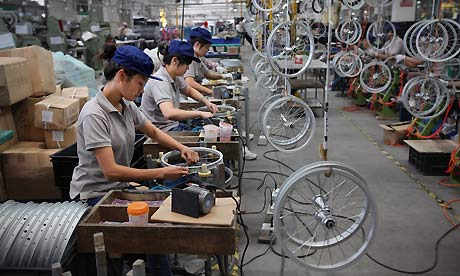The other day, I recounted some of the ways Trump’s tariffs, particularly the ones levied against China, could affect the US bicycle industry and community. Some retailers, distributors, importers and even manufacturers have said the new taxes could “devastate” or even “destroy” the industry. Whether or not those predictions are too dire, there will be ripples or even tidal waves no one will have predicted.
Case in point: On Tuesday Norwegian company Bike Finder announced it is pausing exports of its devices to the US. According to the company, the decision was made “not out of necessity, but strategy.”
So why is a Norwegian company essentially boycotting the US over its trade war with China? You guessed it: While the bike tracking devices, which fit into the handlebars, and the software in them, are designed and developed in Norway, they are manufactured in China.
Other bicycle accessories (especially electronics)—and bicycles—have similar stories behind them: they are created and marketed by companies in North America and Europe but fabricated in China.








